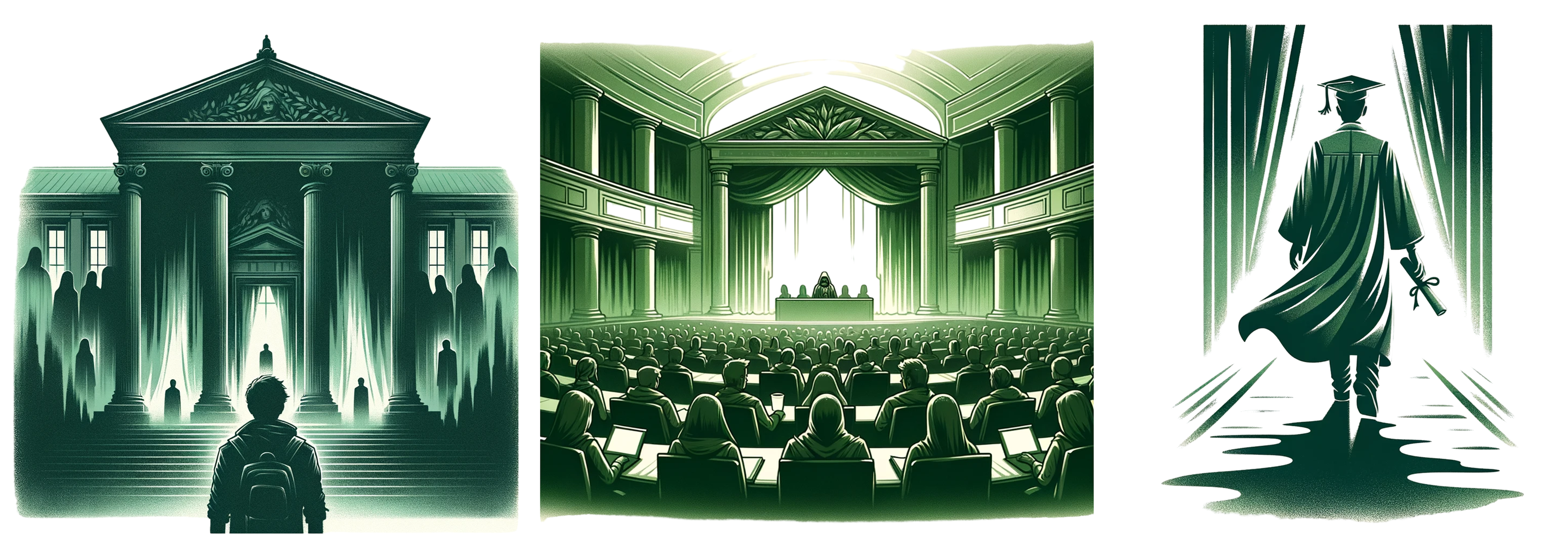Academic Theory – Does it matter?
Well, if you’re reading this, you have found out that academic theory is important. However, you may also have discovered many people pretend they know what academic theory is but, frankly, they don’t have a clue what they’re talking about.
Academic theory is critical. As an undergraduate or postgraduate student you will need to explain or situate your work within an existing body of academic theory or you will simply fail! If you’re a PhD student you will be expected to make a new contribution to theory and develop the existing literature. If you’re unfortunate enough to be an academic stuck on the post apocalyptic Dickensian treadmill of ‘publish or perish’ you will be constantly required to create knew or develop existing theory to appear in any semi-decent journal (that no one will read anyway).
So it’s probably worth taking a few minutes to get your head round what academic theory actually is!
What is an Academic Theory?
An Academic Theory is more than just the everyday English theory. We say we have a theory in everyday English we normally mean nothing more than a hunch, suggestion, feeling, whimsy, basically, a guess (educated or otherwise). Just to confuse things further, that would a hypothesis in academic English; but more about that later.
An Academic Theory explains the phenomenon under investigation. Gravity (theory) explains why your coffee cup falls (phenomenon) to the floor or causes the oceans tides (phenomenon) (as well as lots of other things, to complicated for this whimsical explanation).
An Academic Theory in the Social Sciences “a well-substantiated, well-supported, well-documented explanation for our observations” (Baumeister & Bushman, 2014, p 15). Further examples of Academic Theory in the Social Sciences can be here.
Some examples of Academic Theory
Hierarchy of Needs
According to the theory human beings have a variety of needs (concepts), some more fundamental than others. Maslow grouped these needs into five basic categories (constructs), arranged hierarchically from “lower” to “higher” (propositions). Lower needs dominate behavior when they are not satisfied. Higher needs become salient only after the lower needs have been satisfied.
Team Formation
The theory proposes that for a team to survives will go through the stages of “forming,” “storming,” “norming,” “performing” and “adjourning” many times. As new members join, as others leave, as circumstances or the task change, new tensions arise that take the group back to an earlier stage. A new member implies that the team needs to revisit, however briefly, the forming and norming stages.
Planned Behavior
The theory of planned behaviour was proposed by Icek Ajzen (1985) it links one’s beliefs and behaviour. The theory states that intention toward attitude, subject norms, and perceived behavioural control, together shape an individual’s behavioural intentions and behaviours.
Liminality
Proposed by Arnold Van Gennep (1909) and developed by Victor Turner (1969). Van Gennep placed a particular emphasis on rites of passage, and claimed that “such rituals marking, helping, or celebrating individual or collective passages through the cycle of life or of nature exist in every culture, and share a specific three-fold sequential structure”. Basically there is a three-fold structure:
- Preliminal rites (or rites of separation): This stage involves a metaphorical “death”, as the initiate is forced to leave something behind by breaking with previous practices and routines.
- Liminal rites (or transition rites): Where there is strictly prescribed sequence under a master of ceremonies
- Postliminal rites (or rites of incorporation): During this stage, the initiand is re-incorporated into society with a new identity, as a “new” being.
References
Ajzen, I. (1985). From intentions to actions: A theory of planned behavior. In J. Kuhl & J. Beckmann (Eds.), Action control: From cognition to behavior. Berlin, Heidelber, New York: Springer-Verlag. (pp. 11-39).
Maslow, A.H. (1954). Motivation and Personality. Harper & Row, New York.
Tuckman, B.W., & Jensen, M.A.C. (1977). Stages of Small-Group Development Revisited. Group & Organization Studies, 2(4), 419–427. https://doi.org/10.1177/105960117700200404
Turner, V.W. (1969) The Ritual Process. Penguin, London
van Gennep, A. (1977) The Rites of Passage. Fables, London.


